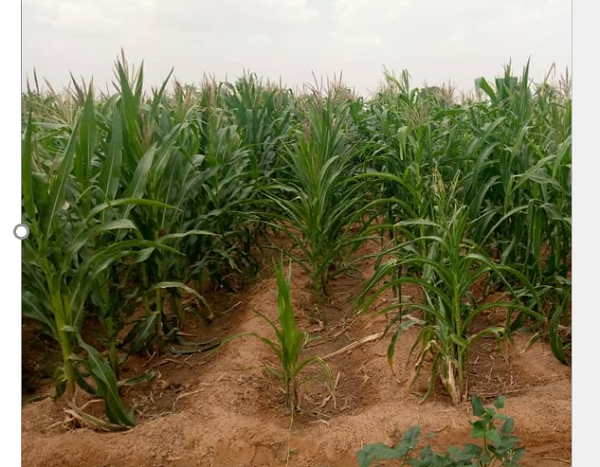
The director-general, National Biotechnology Development Agency (NABDA), Prof. Abdullahi Mustapha has revealed that the adoption of TELA maize will make Nigeria self-sufficient in maize production and improve her economy.
He made this assertion during a TELA Maize press briefing at the Institute for Agricultural Research (IAR) Zaria, Kaduna, where he stressed that biotechnology and its tools have opened a window of opportunity for Nigeria to address challenges facing food crop farming.
“As a country, agriculture was one of the major employers of labour but, in recent times, our agricultural processes started encountering challenges of insects/pests, drought, weed, floods, gully erosion, oil spillage, among others that led to reduced yield and made farming very unattractive, especially to the youth,” he said.
He assured that NABDA will continue to work with IAR Zaria and other institutions across Nigeria and beyond to promote biotechnology usage and research development in agriculture as one of the most potent options available to revive agriculture and make it a net contributor to the country’s gross domestic product (GDP).
Mustapha indicated that modern biotechnology and its tools offer a lot of benefits in agricultural productivity and, therefore, could be a game changer if truly and wholly embraced in Nigeria and Africa at large.
“The Federal Government never made a mistake when it decided to invest in biotechnology by creating the National Biotechnology Development Agency (NBDA) as well as the National Biosafety Management Agency (NBMA) to promote and regulate the technology in the country. This is a testimony that the country is well prepared and ready with all the required frameworks in place.
“Biotechnology and its tools, especially genetic modification, has opened a window of opportunity for us in the country in the deployment of genetic modification in agriculture and we are proud of the institute’s achievement in modern biotechnology,” he maintained.
In his remarks, the IAR executive director, Professor Mohammad Ishiyaku, represented by Prof. Bitrus Tarfa, added that TELA maize would make maize production cheaper in Nigeria.
According to him, the introduction of the insect and drought-resistant variety will make maize production cheaper in Nigeria. He said TELA maize which is drought resistant, will not only provide stable production of maize but expand maize production to areas with marginal rainfall.

“IAR is committed to making our agriculture climate-smart and resilient to extreme weather conditions and, also, do very well under optimal environmental conditions,” he said.
Speaking on the economic benefits, the executive director said an estimated savings of N9 billion – insecticide spray of 500 hectares of land and drought – could be made by farmers from farming the maize variety.
“This is to ensure that we continue to expend government resources strictly on those problems that will lead to national economic growth and self-sufficiency in food production. The Institute for Agricultural Research Samaru in its almost 99 years of existence has developed and released crop varieties that are climate resilient and farmer-friendly.
“IAR recognises the importance of cutting-edge tools in sharpening research output. It is in this vein that it combines conventional and modern genetic engineering tools to discover scientific solutions to farmers and consumer problems.”
In his presentation on how the adoption of TELA maize could translate to an economic boost and make Nigeria self-sufficient in maize production, the principal investigator for TELA maize, Prof. Adamu Rabiu said the maize variety is a stacked trait, stem-borer and fall armyworm resistant and, at the same time, drought-tolerant.
“So, the trial was in 3 phases; the first trial is breeding for fall armyworm resistance while the second trial is those raw materials bred that are resistant to stem-borer and the third trial is about those materials evaluated that could do well in the presence of drought under optimum conditions and try to manage them. Fall armyworm could cost 80 per cent yield losses and, if not properly managed, can lead to a total yield loss,” he explained.
Highlighting the productivity and profitability of TELA maize, the country coordinator, Open Forum on Agricultural Biotechnology (OFAB), Dr. Rose Gidado said farming is more about productivity and harvestable yield.
“The fall armyworm has devastated maize farms in Nigeria and farmers have been suffering but when the maize variety is ready and gets to farmers, they will smile and, with the increase in yield, farmers’ livelihood will be enhanced and they will also get more money,” she added.

